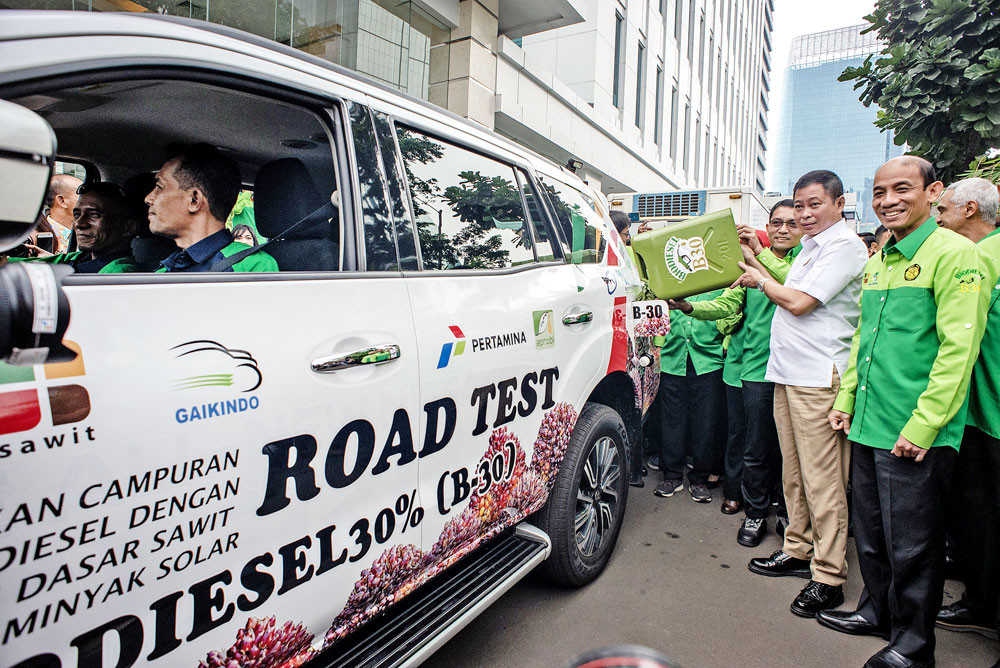
After five-month road test, B30 implementation gets green light
by Norman HarsonoBiodiesel industry stakeholders have completed a five-month road test, whereby 11 vehicles were driven up to 50,000 kilometers using 30 percent blended biodiesel ( B30 ), as the government is set to mandate the biofuel usage starting early next year.
The Energy and Mineral Resources Ministry, as the test’s initiator, said in a statement on Thursday that the vehicles showed “relatively similar” performance in power, emissions and fuel consumption compared to when run using B20 biodiesel, the usage of which was made mandatory last year.
“Based on the B30 road test results, we can say the B30 policy is ready to be implemented on diesel engine vehicles starting Jan. 1, 2020,” said the ministry’s research and development head Dadan Kusdiana.
Dadan explained in a statement issued in September, when the tests were slightly over 70 percent complete, that B30-powered vehicles consumed more fuel but yielded higher power than their B20-powered counterparts. Using B30 also lowered all emission levels except for nitrogen dioxide.
However, the ministry also made a note addressed to automakers such as, Toyota, Daihatsu and Mitsubishi, that vehicles would require more engine filter changes when they first start using B30. Meanwhile, producers, namely the country’s largest fuel distributor, Pertamina, and Indonesian Biofuel Producers Association (Aprobi) members, should blend the biofuel as soon as they receive constituent ingredients in minimizing water build up.
The B30 policy plays an important role in the government's efforts to slash oil imports, which contribute heavily to the country's trade deficit. Indonesia's B30 is also expected to open new markets for its palm oil exports, which is facing challenges from traditional markets like the European Union over sustainability and environmental issues.